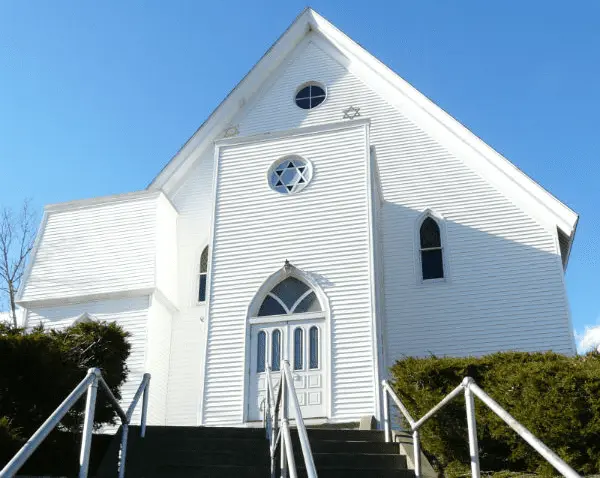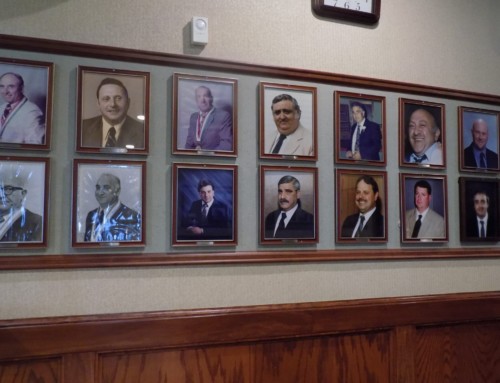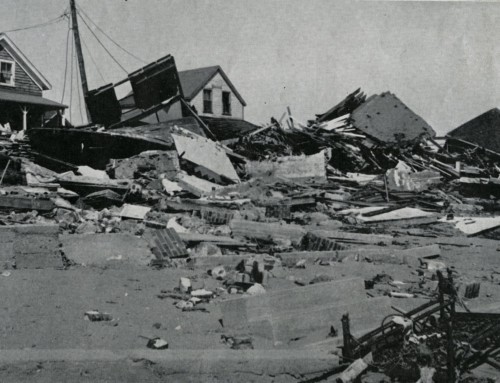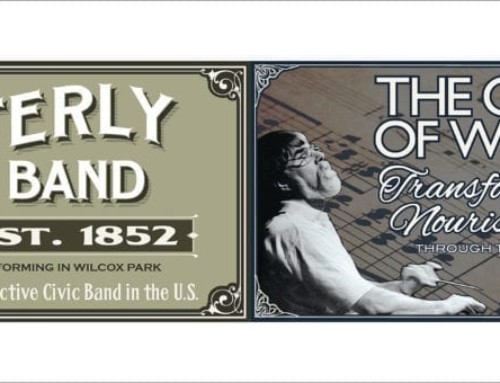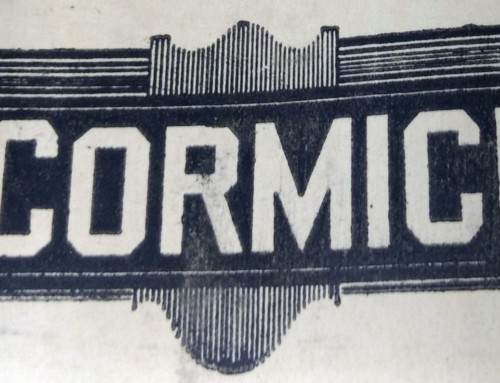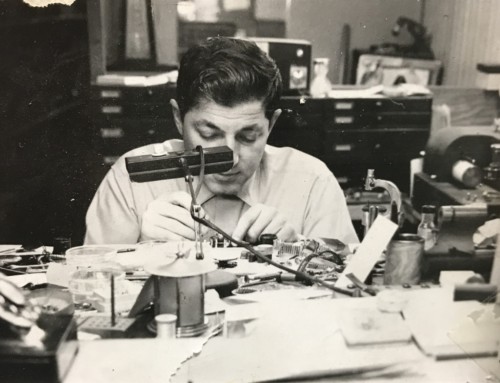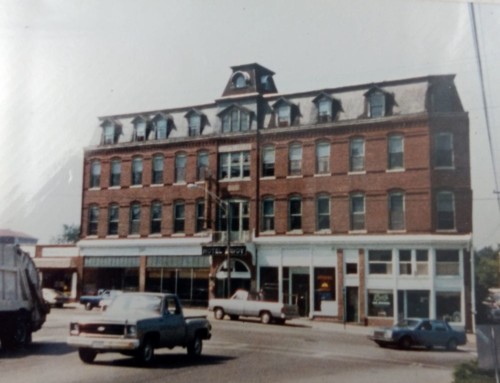Although they have always composed a relatively small portion of the town’s overall population, the Jewish citizens of Westerly have played a substantial role in shaping the community into what it is today. With Hanukkah ending, we wanted to take a closer look at the history of Westerly’s Jewish community and their many contributions over the last 150 years.
The first man largely believed to have been Westerly’s first Jewish resident was Abraham Englehard, a successful dry goods store owner. His store opened in the 1860’s and remained in operation locally until at least 1893. The belief that he was Jewish originates from advertisements in the Narragansett Weekly for Englehard’s store which note that he was closed on Saturdays and in 1863, he was also closed for Rosh Hashana.
Englehard’s store being closed on Saturdays was not unusual, however. In fact, closing on Saturdays was a fairly common practice locally, which contributed significantly to an influx of Jewish immigrants in the latter half of the nineteenth century. Westerly and Hopkinton were home to many Seventh Day Baptists, who celebrated their sabbath on Saturdays, much like the practitioners of Judaism. Because of this, Rhode Island Blue Laws requiring businesses to be closed on Sundays contained an exemption for the two towns, allowing business owners to close on Saturdays and reopen on Sundays. This unique practice enticed many early Jewish immigrants to settle in Westerly and open a business.
After Englehard, there was a slow, but steady, stream of Jewish migrants to Westerly which led to the formation of a sizeable community. One of these immigrants was Jacob Stern, who initially found work at Englehard’s store in the 1860s, before opening his own store, the famed Bee Hive on the corner of Broad and High Streets, in 1879. Over the next several decades, Stern became a prominent local figure.
The weddings of his thee daughters, who were themselves quite popular in town, were held at Bliven’s Opera House. Another noted migrant was a man named Louis Tuch, who arrived in Westerly in the 1870’s and operated a successful clothing store in Westerly with his brothers-in-law, Theodore, Herman, and Max Samuel, until 1926.
Beginning in 1881, there was a significant migration of Jews from Eastern Europe, many of whom settled in Westerly. Many were peddlers who sold their wares while riding through town on horse-drawn carriages. By 1890, the majority of the Jewish immigrants to Westerly were now part of the upper middle class, allowing them to open up several successful businesses. At the beginning of the 20th-century, Westerly was visited by Rabbi Bernard Drachman, who chronicled his stay in his autobiography “The Unfailing Light.” In his account, Drachman describes his time in Westerly as “three delightful days,” and gives a detailed account of the local Jewish population.
From the late 19th-century through the first decade of the 20th-century, there was another wave of Jewish immigrants to Westerly, which led to discussions regarding the formation of a congregation. The result was the founding of the Congregation Sharah Zedek on October 14, 1908. The original members who signed the charter were Lewis Solomon, David Ribner, Sender Soloveitzik, Solomon Soloveitzik, Morris Soloveitzik, and Harry Soloveitzik. Prior to this development, there were various holy day celebrations held in locations throughout downtown Westerly, but there had never been a formal group which oversaw these celebrations.
After forming a congregation, the group then faced their next issue: finding a permanent home for worship. This problem was solved on December 5, 1917, when the congregation purchased their current synagogue on Union Street. This building, constructed in 1872, had previously served as an Episcopal Church before being sold to the Ancient Order of Hibernians, from whom Sharah Zedek purchased the site for $10. Before establishing their permanent home, Jewish residents worshipped in synagogues on Canal Street, where most of the town’s Jewish settlers resided. By early 1918, there were 35 Jewish families in Westerly, a number which increased to 40 by 1954.
Throughout the 1930s and 1940s, the congregation initiated efforts to raise funds for various causes including the Jewish Hospital in Denver (still operating today as the leading respiratory hospital in America) and aid for Jewish refugees in Europe who were facing persecution by the Nazis. In May 1946, a sisterhood organization was formed, and in the ensuing decades, the group has performed a great deal of charitable work to benefit the community. During this period, another notable congregant was Abraham Soloveitzik, an editor for the Westerly Sun. Soloveitzik was a noted supporter of Westerly’s Boston Marathon winner, Ellison M. “Tarzan” Brown.
In Sharah Zedek’s early years, the synagogue was considered an Orthodox Shul, a status which it retained until the 1940s. Throughout the 1940s and 1950s, there was a split within the congregation between those who practice Orthodox Judaism and those who chose to observe Conservative Judaism. The divide led to the creation of two distinct groups within the same building, with the Orthodox practitioners in the lower level, while the Conservative worshippers congregated upstairs in the sanctuary. This divide did not last long. By the end of the 1950s, the synagogue practiced conservative Judaism exclusively.
For many years, the temple also maintained a school, which by September 1953, had 21 students enrolled. At that time, the advanced classes (for older children) met on weekday afternoons, while the kindergarten group met on Sunday mornings.
In the ensuing decades, the number of worshippers waned, with only 20 members in total being registered in 1968. Declining membership resulted in fewer services. At one point, Sharah Zedek only held services for High Holidays. Since the 1980s, however, a resurgence in the number of congregants has caused the temple to now hold services at least once per month. In 2008, the congregation celebrated its 100th anniversary.
Although the Jewish population of Westerly has decreased over the last century, the devotion and strength of the community has remained. The contributions of the members of Westerly’s Jewish residents are worthy of celebration and the continuing faith of these individuals and families has added to Westerly’s diversity and contributed to the sharing of ideas and beliefs.
